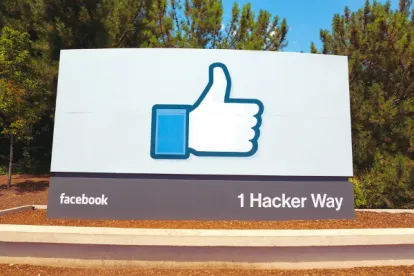In welcome news for employers defending collective actions under the Fair Labor Standards Act (FLSA), the U.S. Court of Appeals for the Seventh Circuit recently joined the Fifth Circuit in holding that “[t]he court may not authorize notice to any employee whom the employer shows entered a valid arbitration agreement, unless the record reveals that nothing in the agreement would prohibit that employee from participating in the action.”
In Bigger v. Facebook, Inc., the plaintiffs brought a proposed collective action under Section 216(b) of the FLSA, alleging “violations of the FLSA overtime-pay requirements.” In FLSA collective actions, if the court determines that there exists a population of “similarly situated” indivduals, the court can, in its discretion, authorize notice to be sent to employees advising them of the suit and of their ability to opt in. The district court did so. In response, the defendant employer argued that most of the “employees in the group had entered arbitration agreements waiving their right to participate in the action,” and thus the district court abused its discretion by authorizing notice to be sent to them. Interlocutory review was granted.
According to the Seventh Circuit, the case presented the question of whether “a court may authorize notice to individuals who allegedly entered mutual arbitration agreements, waiving their right to join the action.” In its judgement, the court explained the “twin goals” of collective action: “enforcement and efficiency.” That is, ostensibly preventing FLSA violations and resolving common issues in a single action. However, the court also recognized the potential for abuse inherent in FLSA collective actions, namely that “plaintiffs may wield the collective-action format for settlement leverage,” noting that “expanding the litigation with additional plaintiffs increases pressure to settle, no matter the action’s merits.”
Ultimately, in a matter of first impression, the Seventh Circuit held that “a court may not authorize notice to individuals whom the court has been shown entered mutual arbitration agreements waiving their right to join the action.” Moreover, “the court must give the defendant an opportunity to make that showing.” To guide the district court in analyzing whether the showing has been made, the Seventh Circuit explained the steps the trial court must take:
-
The district court must determine if any plaintiff contests the validity of defendant’s assertions regarding the arbitration agreements. If no plaintiff contests assertions, notice may not be sent to those employees.
-
If a plaintiff contests the assertions, the parties must submit evidence regarding the validity of the arbitration agreements. The defendant employer bears the burden of showing, by a “preponderance of the evidence,” the existence of a valid arbitration agreement for all employees sought to be excluded.
The Seventh Circuit vacated the order authorizing notice, and remanded to the district court to apply the newly announced standard.
The Bigger decision is good news for employers defending collective actions under the FLSA, insofar as it makes clear that individuals who have executed arbitration agreements are not entitled to court-sanctioned notice. This arises most often when some, but not all, of the potential collective action members have executed arbitration agreements.
It remains to be seen what evidence and arguments the parties will present to the district court (including whether non-signatories have standing to challenge the validity of other employees’ arbitration agreements), and what the outcome will be when the Seventh Circuit’s newly announced standard is applied. What is clear is that for employers with an arbitration program, the Bigger decision provides a strategic weapon for fracturing putative FLSA collective actions and potentially stopping those suits in their tracks.




 />i
/>i

